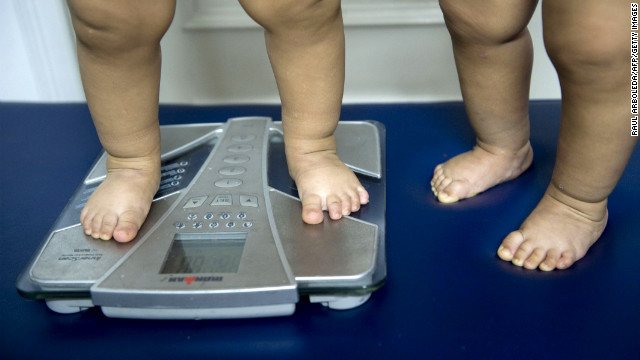Maryam Ahmed was overweight as a child and is still battling with it. In her adult years, she has committed to diet and exercise—and helping other young people deal with being overweight.
“I make sure not to eat too much and that I eat what I am supposed to be eating, an adequate diet,” she says. “I also exercise two hours every day, six days a week.”
Overweight and obesity make the other face of malnutrition, and they are rising among young people.
Around 38 million children under the age of five were overweight or obese in 2019, according to the World Health Organisation.
More than 340 million children and adolescents aged 5-19 were overweight or obese in 2016, according to the World Health Organisation.
By 2019, the number of children aged under five who were overweight or obese stood at 38 million.
The number of obese children and adolescents worldwide has risen tenfold in the past four decades.
If current trends continue, more children and adolescents will be obese than moderately or severely underweight by 2022, according to a new study led by Imperial College London and WHO, published in the Lancet.

What’s the difference?
Overweight and obesity both come down to excessive fat accumulation. They are measured according to body mass index (BMI)—a ratio of weight and height measured against Child Growth Standard of the WHO.
For children under five, overweight is weight-for-height greater than two standard deviations above the media, and obesity is three deviations.
For children aged 5-19, overweight is a BMI for age greater than one standard deviation, and obesity is two.
Obesity occurs when there is more than enough fat in the body than it needs for optimal performance,” according to the Civil Society-Scaling up Nutrition in Nigeria.
It is a more serious form of being overweight & occurs as a process from being overweight to being obese.
Overweight impacts children’s immediate physical and emotional well-being. It also increases the risk of becoming obese later in life, a condition associated with non-communicable diseases and considerable health and economic disadvantage for individuals, families and society.
Obesity and even overweight in childhood and adolescence can have adverse health and financial consequences throughout life. Children with overweight, and specifically those who have obesity, are at a higher risk of developing gastrointestinal, musculoskeletal and orthopaedic complications, fatty liver, impaired glucose intolerance and type 2 diabetes.

A seat at the table
A global movement is on to get young people concerned about their nutrition. It is harnessing the power of social media as well.
Ahmed is a youth ambassador, under the project Scaling up Nutrition – Youth Voices 4 Sustainable Change. And her agenda is nutrition—in blogs, articles, social media campaigns, conferences.
One obstacle she constantly faces is the reaction when she speaks about young people having to deal with overweight and obesity.
“A lot of people eat food to be filled up or to feel less hungry rather than eating the right things,” she says.
“So, youth are usually surprised because they feel young people do not really need to make an effort to have adequate nutrition or to exercise or to eat less because they have high metabolism which will help their body to lose that fat.”
So what should young people be thinking about when eating?
“When young people eat a lot of junk food and comfort food and food that has too much nutrients, they may feel that because they are young people, they have high metabolism and that means they do not have to exercise because their bodies will naturally lose the fat for them, but that is not entirely true,” says Ahmed.
“Their metabolism may help them lose some fat, but not as much fat as they need to lose, so, the remaining fat will keep accumulating into their body and will affect them in the long run through cardiovascular diseases, high blood pressure, heart diseases, some cancers, and so on.”
What to do about overweight and obesity? CSSUNN has run daylong tweet chats on the issue backed by popular hashtags. It has also compiled best practice for preventing excessive accumulation of fat.
- Exercise regularly: You only need to get about 5 hours of exercise a week to prevent yourself from being obese.
- Have a healthy eating plan: You need to follow a healthy eating plan and ensure to eat food that will provide you with the adequate nutrients that you need.
- Avoid food traps: You need to avoid food traps and situations that cause overfeeding and monitoring one’s weight regularly.
- Monitor your weight regularly: You need to do that so you notice when you are moving a bit off track, weight-wise and buckle up.
- Be role models: Parents also need to be role models because if they eat healthy and exercise regularly, their child is more likely to do the same.
The combined discipline of diet and exercise is the message youth ambassadors like Ahmed preach.
“It has really helped me with my weight and I’m almost at the stage of the BMI which will show that I am a normal weight,” she says.

 Join Daily Trust WhatsApp Community For Quick Access To News and Happenings Around You.
Join Daily Trust WhatsApp Community For Quick Access To News and Happenings Around You.


